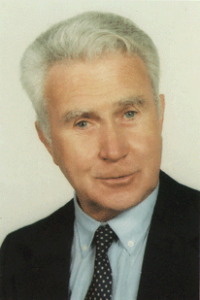Background
Established in 1969 by Jean PEPIN, the Jean Pépin Center has long been, in the French National Center for Scientific Research (CNRS), the Research Unit (UPR 76) specializing in the study of Late Antiquity doctrines, Neoplatonism in particular. In 1993, the creation of an index of scholarly works in classical studies entitled L’Année philologique helmed by Pierre-Paul Corsetti led to the launching of the scientific information mission which, since then, the research group has continued to expand steadily.
In 1997, partnering with the Monotheistic Religions Research Center (LEM), the Medieval Studies Center of Paris (LAMOP), and the History of Arab and Medieval Science and Philosophy Center (CHSPAM), UPR 76 established the Textual Traditions Institute (CNRS Research Federation 33), active up to 2013.
When the Research Group on Theories and History of Esthetics, Technology, and Art (THETA) headed by Pierre Caye and Serge Trottein and the Arab Philosophy Research Group headed by Maroun Aouad joined the Jean Pépin Center in 2004 and 2006, respectively, its field of research expanded to encompass not only how ancient doctrines evolved but also how they were transmitted and received up to the eighteenth century. From 2008 to 2015, together with the University of Chicago, the University of Bologna, the University of Pisa, the Max Planck Institute for the History of Science, and the Paris Observatory, the Center founded the International Research Group (GDRI) on Art Theories and Treatises from the Renaissance to the Enlightenment (STAR). In 2012, UPR 76 joined the Center of Excellence for the History and Anthropology of Knowledge, Technologies, and Beliefs (LabEx HASTEC). From 2014 to 2019, the Jean Pépin Center, partnering with Istanbul’s Yildiz University, founded the International Joint Research Center (LIA) on Arab Philosophy in the Ottoman Empire.
In 2015, the Center became a joint research unit (UMR 8230), attached to the departments of Philosophy and Ancient Science of the graduate university École normale supérieure (ENS) in Paris, in the framework of the advanced studies institute Paris Sciences & Lettres (PSL). From 2015 to 2019, the Jean Pépin Center coordinated the Scientific Interest Grouping (GIS) entitled Humanities. From 2017 to 2021, it was the research center in charge of the Key Research Sector (DIM) on Arab and Syriac Philosophy Manuscript Heritage in Île-de-France and elsewhere (PhASIF) with support from the Île-de-France region. In 2019, the Jean Pépin Center joined the PSL’s Graduate School of Advanced Research (EUR) Translitteræ.

